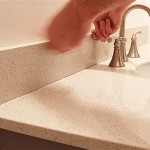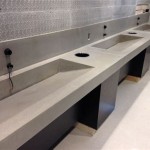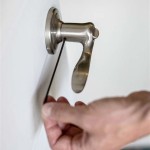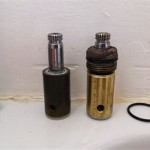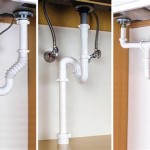Essential Aspects of Bathroom Sink Faucet Connector Hoses
Bathroom sink faucet connector hoses serve as crucial components in the proper functioning of bathroom sinks, providing a reliable connection between the sink faucet and the water supply lines.
Understanding the essential aspects of these hoses ensures optimal performance, durability, and safety within your plumbing system. This article explores the key factors to consider when selecting and installing bathroom sink faucet connector hoses.
Material and Durability: Connector hoses can be made from various materials, such as stainless steel, PVC, rubber, or copper. Stainless steel hoses offer superior durability and corrosion resistance, while PVC hoses are more flexible and economical. Consider the water conditions and the expected lifespan when choosing the material.
Length and Flexibility: Selecting the correct hose length is essential to ensure a proper fit without kinking or straining. Measure the distance between the faucet and the water supply line before purchasing. Flexible hoses provide greater installation convenience, especially in tight spaces.
Connections and Fittings: Hoses should have compatible connections to fit both the faucet and the water supply line. Check for standard thread sizes (e.g., 1/2-inch IPS) and ensure the fittings are secure and leak-free. Compression fittings, flare fittings, and push-fit connectors are commonly used.
Water Pressure and Temperature Ratings: Connector hoses must be rated to withstand the water pressure and temperature of your plumbing system. Higher water pressure requires hoses with reinforced construction to prevent bursting. Similarly, hoses designed for hot water applications should have higher temperature ratings.
Certifications and Standards: Reputable manufacturers adhere to industry certifications and standards, such as CSA, UPC, and ANSI. These certifications ensure that the hoses meet specific performance and safety requirements, such as lead-free compliance and burst strength.
Installation Considerations: Proper installation is crucial to prevent leaks and ensure a long lifespan. Use plumber's tape or pipe sealant on threaded connections. Secure the hoses with hose clamps to prevent movement and vibration. Avoid overtightening to prevent damage.
Maintenance and Inspection: Regular inspection of connector hoses can identify any potential issues early on. Check for leaks, cracks, or kinks. Replace hoses immediately if any damage is detected. If the water is shut off for an extended period, drain the hoses to prevent freezing and damage.
Understanding the essential aspects of bathroom sink faucet connector hoses empowers you with the knowledge to make informed decisions about their selection, installation, and maintenance. By considering factors such as material, length, connections, and certifications, you can ensure reliable water flow and prevent potential plumbing issues in your bathroom.

2 Pc 24 034 Sink Faucet Supply Line Hose Extension 3 8 Female X M10 Male Connector

Wowow 3 8 In Compression X 1 2 Fip 24 Pex Flexible Faucet Supply Line The Toilet Lines Department At Com

Eastman 16 Inch Fip Flexible Faucet Connector Pvc Indonesia Ubuy

24 034 Bathroom Kitchen Faucet Connector Braided Stainless Steel Supply Hose Supple

Faucet Connector For The Lavario Portable Manual Washing Machine Clothes Washer

Hot Ing New Swivel Adjustable Taps Kitchen Brass Bathroom Sink Faucet Connector Hose With Switch China Made In Com

Ez Fluid 20 X 1 2 Fip 3 8 Comp Stainless Steel Braided Flexible Faucet Water Supply Hose Connector Line For Bathroom Kitchen Outdoor Sink Faucets 1pc Com

Wowow 3 8 In Female Compression X M10 Male Connector 20 Braided Nylon Faucet X1010 Bhhd The Home Depot

Ishiro Dowell 8 In Waterfall Widespread 2 Handle Bathroom Faucet With Pop Up Drain Assembly Spot Resist Brushed Gold Smd0jn022063008 The Home Depot

Flexible Silicone Sink Extender Drain Pipe Connector Extension Hose Faucet 30 Cm
Related Posts


